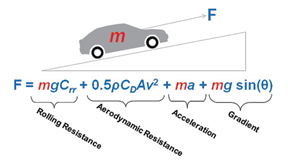Lightweighting Gains A Following With Manufacturers
 Print this Article | Send to Colleague
Print this Article | Send to Colleague

A known factor in increasing the consumption of fuel, and increasing emissions from vehicles, is "drag" or the amount of weight a motor needs to work against. Drag can present itself in many ways, from the obvious (carriage weight of added items) to the unseen (under-inflated tires that force an engine to work harder). These are states that can be corrected or compensated for, provided the vehicle owner or maintenance person is aware of them.
More difficult to handle is the overall weight of the vehicle itself, inherent in the heavy metal that is present in the frame and other parts. Several manufacturers are working on that. Ford made news with its aluminum-body 2015 F-150. Chemical manufacturer DuPont is currently working on high-performance polymers meant to withstand the punishment of driving conditions. In both cases, the goal is to reduce the weight (and the drag) with the vehicles.
According to DuPont's site, "Vehicle weight reduction saves energy, minimizes brake and tire wear, and, perhaps most welcome, it cuts down emissions. Lightweighting vehicles is directly linked to lower CO2 emissions and improved fuel economy. The benefits of even modest vehicle weight reduction are significant. Reducing an automobile’s weight by a mere 50 kg (110 lbs) reduces up to 5 g of CO2 /km and increases fuel economy by up to 2 percent."
The website
Research and Markets has announced the release of the report "Global vehicle lightweighting - technology, trends, and the future." It is said to detail the various parts of a vehicle, and describe how lightweighting would impact performance and sustainability.
There are critics of the lightweighting trend who claim that lighter negatively impacts vehicle safety. However, proponents of lightweighting have been quick to refute the claims. In many cases, they claim, the conditions that would cause a vehicle made from these materials to be less robust in a crash were far greater than what would have been in real-world scenarios.
The lightweighting movement, no matter what side of the debate is discussed, will not be going away any time soon. For further insight into it, you can visit the Research and Markets report page by
clicking here.
Back to NAFA Connection


